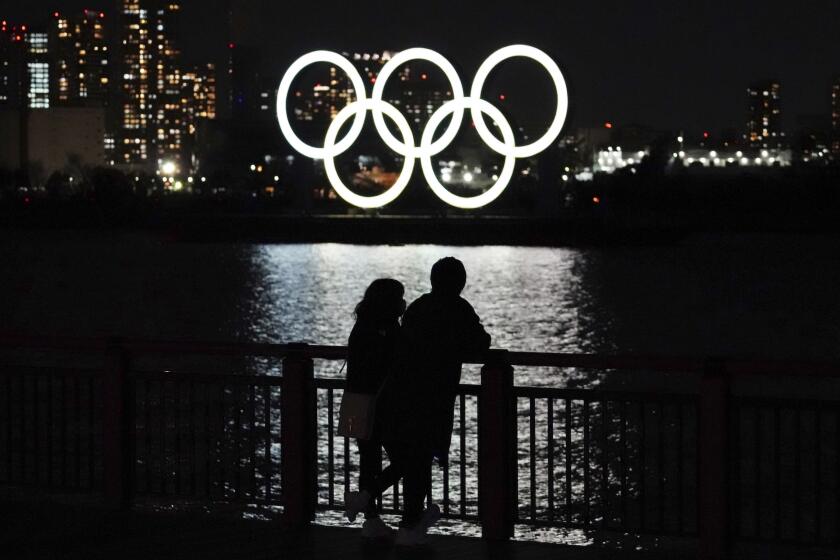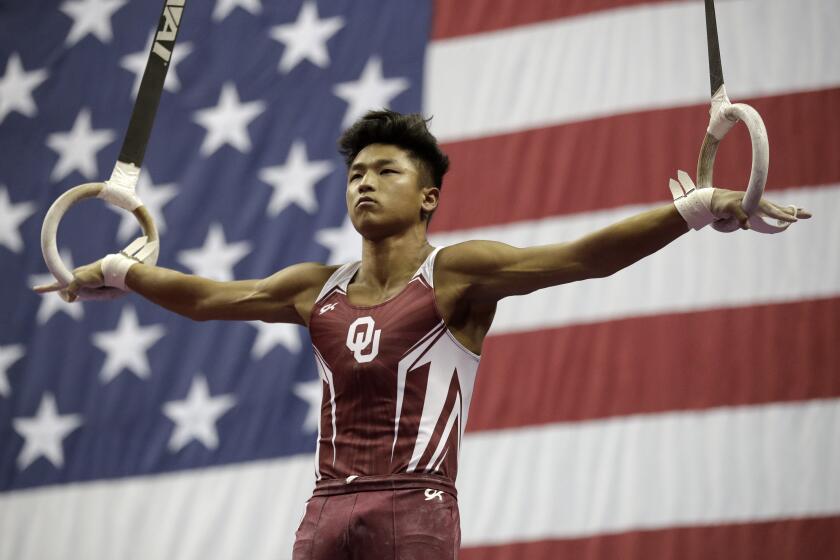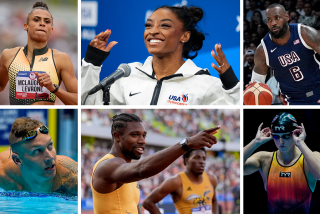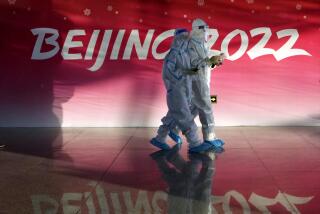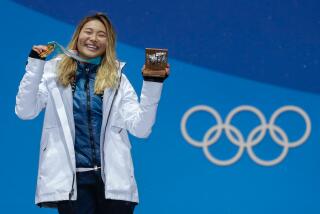To vaccinate or not to vaccinate: That’s a question for U.S. athletes going to Tokyo
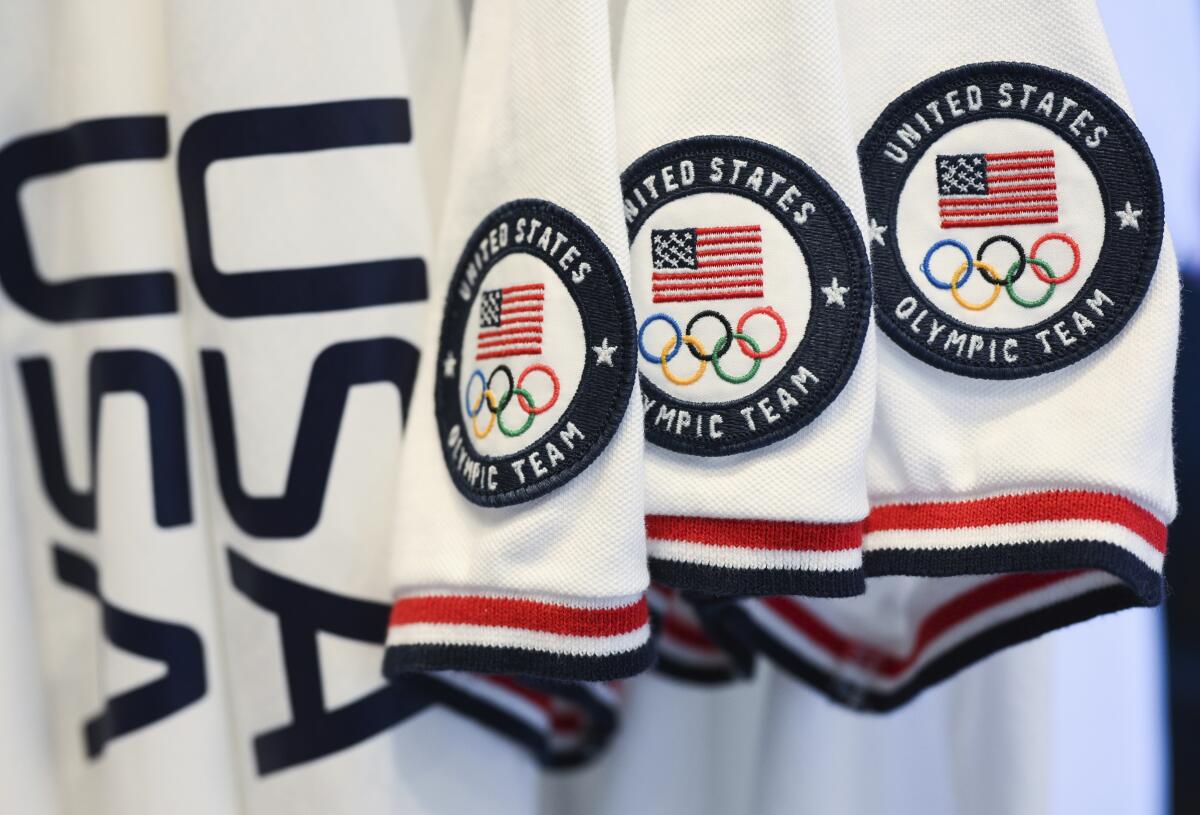
- Share via
The thought of getting the COVID-19 vaccine doesn’t exactly thrill Carlin Isles. The virus hasn’t hit him yet and, as a world-class athlete, he feels strong enough to fend off any serious illness on his own.
“I’ve definitely had my doubts about getting the shot,” he said.
But as a rugby star and winger on the U.S. squad headed to the Tokyo Olympics, Isles doesn’t have much choice. A positive test at the Games this summer could force him off the field and into quarantine.
“I don’t want them telling me I can’t play,” he said, “after all these years of hard work.”
Like any other segment of the population, the 600 or so American athletes headed for the Olympics in late July have varying opinions about the need to protect themselves against infection.
They know that Olympic officials have established a strict safety protocol for Tokyo. They have also heard this week’s news about very rare but dangerous blood clots that could be linked to Johnson & Johnson shots.
An estimated 600,000 Tokyo Olympics ticket holders outside of Japan are fighting to get elusive refunds after they were banned from attending the Games.
And there is another complication — even mild side effects from a vaccine might disrupt preparing and qualifying for the Games. Shooting team member Ginny Thrasher took care in scheduling her second dose so that “it would not knock me out for some vital competition days.”
As of early this week, 122 million Americans had received at least one dose of vaccine, with 75 million getting both. It is unclear how many American athletes have had their shots; U.S. Olympic & Paralympic Committee officials say that because of health privacy laws, they are not even keeping track.
“We will not mandate the vaccine,” USOPC chief executive Sarah Hirshland said. “But we are encouraging it.”
The International Olympic Committee has taken a similar approach, noting that vaccine availability has varied widely from country to country. Instead of a mandate, Olympic leaders and organizers in Japan have issued a set of regulations they refer to as their coronavirus “playbook.”
Athletes must test negative before leaving their home countries. Once in Japan, they will be retested at least every four days and monitored by way of a cellphone app. Social distancing in the athletes village and at venues will be enforced.
The playbook warns against “unnecessary forms of physical contact such as hugs, high-fives and handshakes.”
Anyone testing positive will be immediately pulled from competition and, according to news reports from Japan, either hospitalized or placed in quarantine at a private hotel. Contact tracing and further testing could disqualify teammates.
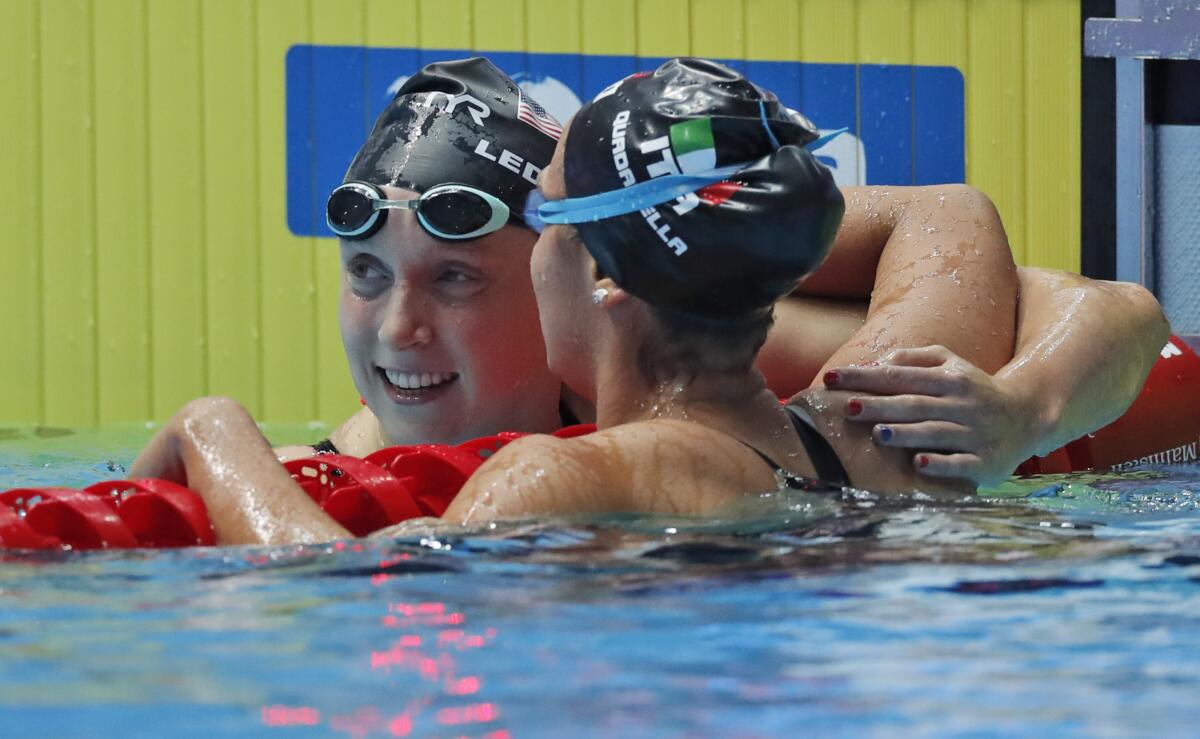
It is not known how long infected athletes will be kept out of the Games or whether, under certain circumstances, events might be delayed until they can return. The thought of missing out worries many U.S. team members.
“Once it’s my time,” said Simone Biles, a four-time gold medalist in gymnastics, “I would love to get vaccinated.”
Rower Kara Kohler is similarly eager, even though she usually skips annual flu shots and the like. She has seen the comparative severity of the coronavirus.
“Quite a few girls on the team have had it back when it all started and they were out for a long time,” said Kohler, who took bronze in quad sculls at the 2012 London Games. “Since I use my body so heavily every day, I don’t want to risk getting sick and having respiratory issues.”
The health risks athletes face over the next three months might increase significantly at the Games, amid more than 11,000 athletes from more than 200 nations. Some teams will be fully vaccinated. Many will not be.
With the threat of a COVID-19 outbreak a reasonable concern, members of the U.S. women’s rugby team discussed among themselves and agreed to get vaccinated. Tom Scott, hoping to qualify in the new Olympic sport of karate, came to his decision at a recent competition.
“You’re sitting there getting tested and you cannot compete unless you have a negative test,” he said. “So you’re kind of sitting there and just hoping.”
Sakura Kokumai, a member of the U.S. karate team, and U.S. gymnast Yul Moldauer spoke Wednesday about what it’s like to be Asian American in the current social climate.
Sakura Kokumai, a teammate on the karate squad, has found herself pondering what happens after the Games: “I’m going to be in contact with people from all over the world and the thought of, ‘OK, what if I bring it back and give it to somebody?’”
As for the trick of timing, some athletes found gaps between training sessions and others have waited until after critical qualifying events.
A few U.S. team hopefuls have suggested that Olympians should use their celebrity to encourage widespread vaccination. Biles said: “It’s a good thing for athletes to become advocates for that.” But most seem focused on ensuring they don’t get bumped off their sport’s biggest stage.
“I’m willing to do whatever it takes to get ready for Tokyo,” taekwondo athlete Paige McPherson said.
As potentially the biggest star of the swimming competition, Katie Ledecky plans to take extra precautions in Tokyo.
“The mask wearing, the distancing, the testing,” she said. “Even if you get the vaccine and you get a positive test, you’re still able to spread the virus.”
Staff writer Nathan Fenno contributed to this story.
More to Read
Go beyond the scoreboard
Get the latest on L.A.'s teams in the daily Sports Report newsletter.
You may occasionally receive promotional content from the Los Angeles Times.

